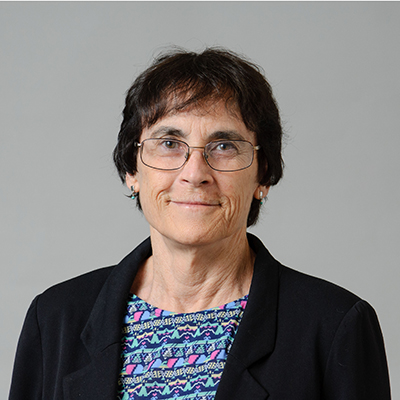Shirley A. Roe
Professor Emerita
Ph.D., Harvard
Areas of Specialty
History of Science; European Intellectual History (seventeenth and eighteenth-century)
Current Research Interests
Science and society in the Enlightenment; politics and conceptions of nature in mid-eighteenth century France.
Biography
Shirley Roe grew up in the Los Angeles area and graduated from Pomona College in 1970. She received her A.M. (1971) and Ph.D. (1976) in History of Science from Harvard University, where she was Assistant Professor and Head Tutor, History and Science, from 1976 to 1982. She spent two years at the Wellcome Institute for the History of Medicine in London, England, on fellowships from NATO and the National Endowment for the Humanities, after which she returned to Harvard in a dual position of research (National Science Foundation) and administration (Special Assistant to the Dean of the Faculty of Arts and Sciences). She joined the History department at the University of Connecticut in 1987 and was Department Head from 2005 to 2013. She was Associate Dean for the Humanities in the College of Liberal Arts and Sciences from 2013 to 2018. She retired from the university in 2022.
Shirley Roe taught courses in History of Science and Science and Social Issues in the Modern World. Her current research project is on politics, censorship, and ideas of life and matter in mid-eighteenth-century France.
Selected Publications
“Politics and Radical Nature in the Mid-Eighteenth Century: Travelling to the Land of the Cacouacs” (in progress).
“Biology, Atheism, and Politics in Eighteenth-Century France,” in Biology and Ideology from Descartes to Dawkins, pp. 36-60, ed. Denis R. Alexander and Ronald L. Numbers (Chicago: University of Chicago Press, 2010).
“Radical Nature in the Encyclopédie,” in Science, History, and the Social Role of the Man of Knowledge, pp. 37-59, ed. Garland Allen and Roy Macleod (Kluwer Academic Publishers, 2001).
“Life Sciences,” in The Cambridge History of Science. Vol. 4, Science in the Eighteenth Century, pp. 452-472, ed. Roy Porter (Cambridge: Cambridge University Press, 2001).
“Buffon and Needham: Diverging Views on Life and Matter,” in Buffon 88, pp. 439-450. Actes du Colloque International. (Paris: Librairie Philosophique J. Vrin, 1992).
“Metaphysics and Materialism: Needham’s Response to d’Holbach,” Studies on Voltaire and the Eighteenth Century, 284 (1991), 309-342.
Science Against the Unbelievers: The Correspondence of Bonnet and Needham, 1760-1780, with Renato G. Mazzolini. (Studies on Voltaire and the Eighteenth Century, vol. 243; Oxford: The Voltaire Foundation, 1986).
“Voltaire versus Needham: Atheism, Materialism, and the Generation of Life,” Journal of the History of Ideas, 46 (1985), 65-87.
“Anatomia animata: The Newtonian Physiology of Albrecht von Haller,” in Transformation and Tradition in the Sciences: Essays in Honor of I. Bernard Cohen, ed. Everett Mendelsohn (Cambridge/New York: Cambridge University Press, 1984), pp. 273-300.
“John Turberville Needham and the Generation of Living Organisms,” Isis, 74 (1983), 159-184.
“Needham’s Controversy with Spallanzani: Can Animals Be Produced from Plants?” in Lazzaro Spallanzani e la Biologia del Settecento: Teorie, Esperimenti, Istituzioni Scientifiche, pp. 295-303, ed. G. Montalenti and P. Rossi (Florence: Leo S. Olschki, 1982).
Matter, Life, and Generation: Eighteenth-Century Embryology and the Haller-Wolff Debate (Cambridge/New York: Cambridge University Press, 1981).
The Natural Philosophy of Albrecht von Haller, edited collection (New York: Arno Press, 1981)
“Rationalism and Embryology: Caspar Friedrich Wolff’s Theory of Epigenesis,” Journal of the History of Biology, 12 (1979): 1-43.
“The Development of Albrecht von Haller’s Views on Embryology,” Journal of the History of Biology, 8 (1975): 167-190.

| shirley.roe@uconn.edu | |
| Mailing Address | 241 Glenbrook Road, U-4103, Storrs CT 06269 |